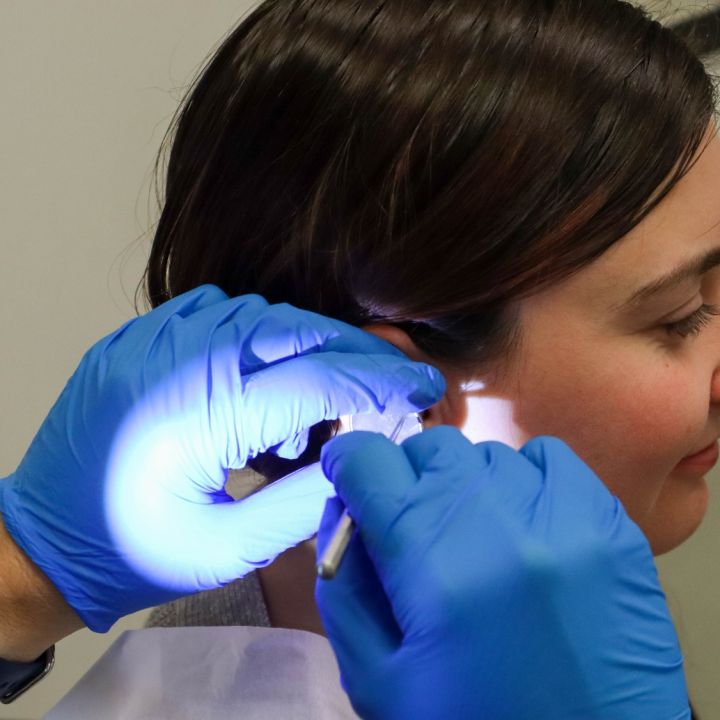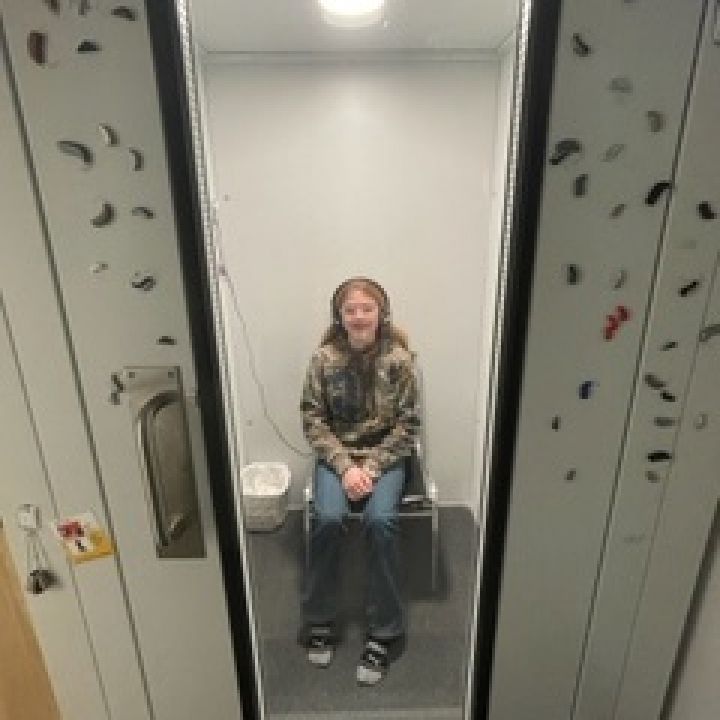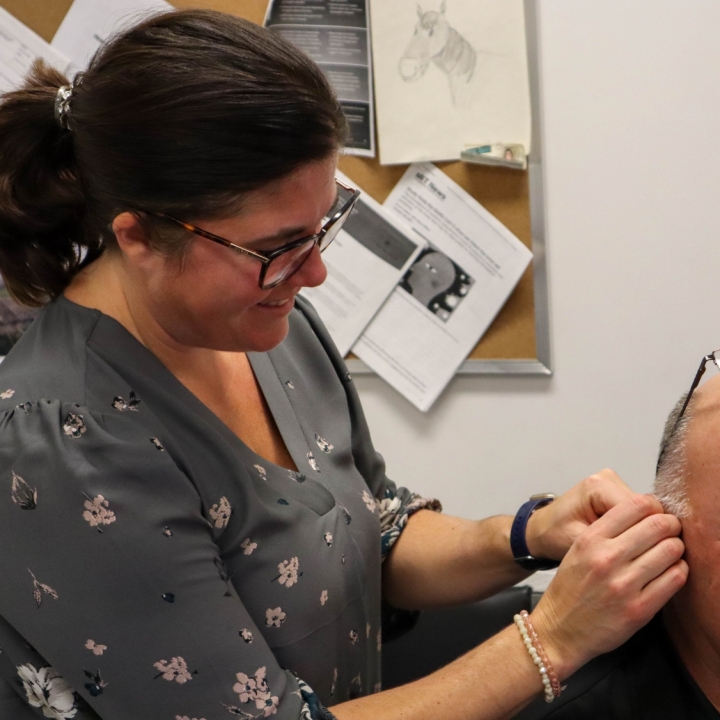Tinnitus Assessment
 Tinnitus
Tinnitus
Tinnitus is a hearing condition that is often described as a constant ringing in the ears.
According to the Mayo Clinic:
Tinnitus is when you experience ringing or other noises in one or both of your ears. The noise you hear when you have tinnitus isn’t caused by an external sound, and other people usually can’t hear it. Tinnitus is a common problem. It affects about 15% to 20% of people, and is especially common in older adults.
Tinnitus is usually caused by an underlying condition, such as age-related hearing loss, an ear injury or a problem with the circulatory system. For many people, tinnitus improves with treatment of the underlying cause or with other treatments that reduce or mask the noise, making tinnitus less noticeable.

 Hyperacusis
Hyperacusis
Hyperacusis is an abnormal sensitivity to sounds.
According to WEBMD:
Hyperacusis is a hearing disorder that makes it hard to deal with everyday sounds. You might also hear it called sound or noise sensitivity. If you have it, certain sounds may seem unbearably loud even though people around you don’t seem to notice them.
Hyperacusis is rare. It affects 1 in 50,000 people. Most people who have it also have another condition called tinnitus, which is a buzzing or ringing in your ear.
Hyperacusis is a hearing disorder. But a lot of people who have it also have normal hearing.

 Misophonia
Misophonia
According to Harvard Health:
People with misophonia are affected emotionally by common sounds — usually those made by others, and usually ones that other people don’t pay attention to. The examples above (breathing, yawning, or chewing) create a fight-or-flight response that triggers anger and a desire to escape. Misophonia is little studied and we don’t know how common it is. It affects some worse than others and can lead to isolation, as people suffering from this condition try to avoid these trigger sounds. People who have misophonia often feel embarrassed and don’t mention it to healthcare providers — and often healthcare providers haven’t heard of it anyway. Nonetheless, misophonia is a real disorder and one that seriously compromises functioning, socializing, and ultimately mental health. Misophonia usually appears around age 12, and likely affects more people than we realize.

While frequently grouped together with Tinnitus, these three conditions are experienced in different way, and the treatment options must be customized you the individual patient. Using in-depth interviews, we will determine the best strategies, treatment plans or devices to manage the impacts that you experience on your quality of life.


